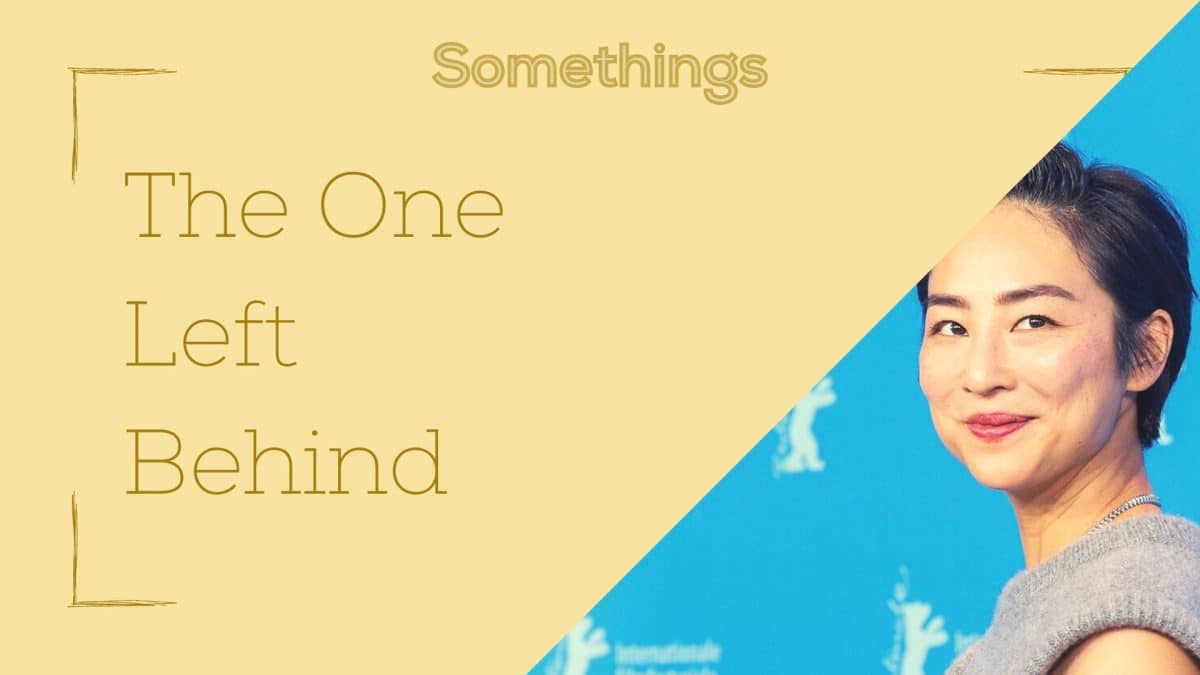Hello Subscribers, New and Old.
Welcome to Somethings, your weekly dose of highlights, quotes and notes from my notebook. If you would like to receive this in your inbox, subscribe now. If you want to support, do checkout the links in the Friends of Somethings Section.
No mini-essay this week. Juggling to many plates.
On to the main event.
📕Something to read
- The Dark Forrest: I recently recommended The Three-body Problem, by Cixin Liu. This sequel tops it in every way. A bleak view of the universe and sentience itself. It is not a horror books, but it will scare you. Liu is not interested in placating the audience with simple heroic narratives.
- XML is the future: A great look at the tech hype cycles from the other side. How developers get high on their own supply.
🎥Something to watch
Past Lives
Note: Part of this text was originally written in my letterboxd review.
As I shared in last week’s mini-essay, it is the things you didn’t do that give rise to regret. This film touches on the same points. The post-war world has been defined by immigration. But what happens to the people left behind. This film tackles it with such brilliant craft, it is impossible to believe it came out this year.
I have been watching a lot of the summer movie fare. In between all of that, this film feels like a breathe of fresh air. Mostly because it gives the audience the room to breathe. Many would describe this as slow. It is not. The pacing is perfect. The plot moves at a brisk pace.
What it does better is the space between the words. Not doing the standard shot reverse shot, letting the actors act. I wish more people experience movies like this on the big screen.
Friends of Weekly Wisdom
- The Sample: The Sample lets you try the best newsletters based on your interest. With one-click you can subscribe if you like.
🗣Some Quotes and Notes
Binge & Purge
I hate the term content. As it pertains to media. It equates all art to one thing and one thing only. Something to fill the air. My head is not an empty box. It does not need to be filled be cOnTeNt.
Warren Ellis shares similar thoughts.
I feel like the term “media diet” just reinforces the current “content consumers” label for people who like to experience arts. “Content consumers” just summons the image of a trough full of gruel. Also, calling you a “content consumer” gives you a good idea of what they really think of you.
— Warren Ellis, Literally Just A Bunch Of Things
Crime & Punishments
All electronic Computers are Von Neuman machines. To the laymen, it means they are supposed to input data, process it, and output information. They are not opinionated on the matter. However corporate interests have forced their opinions on them over the past two decades. Either through the law(DMCA, etc.), or through technical means(various DRM schemes that never stop piracy). Another such method is Google trying to ram ID verification for all websites. EFF posts a great takedown of why it is stupid.
Putting handcuffs on every shopper who enters a store would doubtless reduce shoplifting, and stores with less shoplifting might lower their prices, benefitting all of their customers. But ultimately, shoplifting is the store’s problem, not the shoppers’, and it’s not fair for the store to make everyone else bear the cost of resolving its difficulties.
— Hoffman-Andrews & Doctorow, Your Computer Should Say What You Tell It To Say
Individual & Collective
The internet used to be vibrant. It was full of assholes, but you could find your place. You could find your niche. You could sand down your rough edges. You can hone your smooth ones. You could find your tribe. Then the social media platforms came, and with it came the normies. There was no space for outsiders. For edges, rough or smooth. There was only conformity. Now with the impending death of twitter, the zombifying corpse of Facebook, and the enshitification of TikTok, we are going back to a more decentralized* internet, at least for the English language. At least, that is what Jaap Arriens posits in this essay.
You could argue, I suppose, that this is just the natural end of a specific part of the internet. We spent the last two decades answering a question — what would happen if you put everyone on the planet into a room and let them all talk to each other? — and now we’re moving onto the next one. It might be better this way. But the way it has all changed, and the speed with which it has happened, has left an everybody-sized hole in the internet. For all these years, we all hung out together on the internet. And now that’s just gone.
— Jaap Arriens, So where are we all supposed to go now?
*Decentralized not in technology, but in culture.
Thank you for joining me this week. If you know some who might enjoy this, please forward this email to them. See you next week.
Mudassir Chapra

